1.
Bad corporate versus good corporate. Advice from Scott Adams. A brief history of corporate malaise. The new work order. Break up with your job.
2.
The phases of corporate disillusionment. Corporate burnout. Terminal boredom. Square peg syndrome. Balance disorder. Meaning deficiency. Toxic workplace blues. The corporate malcontents iPod playlist and movie night.
3.
The myth of the true calling. Career fantasy. Detective work. Trying on your dream jobs.
4.
Your money or your life. Worst-case scenarios and bag-lady fantasies. Strategic moonlighting. Your escape plan. Your escape fund. The health insurance question. Financial planning worksheets.
5.
Defining corporate greatness. Portrait of a great place to work. The voice of the people. Finding a corporate job that doesnt suck. Your guide to interview code. The best companies for you. The step-by-step plan.
6.
The flexible revolution. The part-time VP. Flextime. Telecommuting. Part-time. Sabbaticals and leaves of absence. Making your business case. The step-by-step plan.
7.
Start-ups 2.0. Small can be beautiful. The challenges of small. From corporate to start-up. Finding the right job for you. The step-by-step plan.
8.
The solopreneur movement. Trends converging. Thank you for downsizing me. Blogging for dollars. The accidental entrepreneur. Going solo by moonlight. You can always go back. The step-by-step plan.
9.
The big idea. The entrepreneurial dream. Corporate-to-entrepreneur hall of fame. From hobby to big business. Its good to be Grand Pooh Bah. Do you have what it takes? What kind of business is right for you? The corporate rock star. Beer is a wonderful thing. The step-by-step plan.
10.
The creative dream versus the corporate reality. This is not my beautiful life. Telecommuting from Elvis Costello concerts. Are you a creative soul trapped in a cubicle? Finding creative time in a busy corporate life. Having more fun at The Office. Work to live, but dont quit your day job. Taking the leap.
11.
The pajama game. Make a difference part-time. Make a difference in a corporate job. Explore teaching. Work for a nonprofit organization. Dancing out of corporate. Make a difference through entrepreneurship.
12.
The fear factor. What will people think? Your identity crisis. Making it look easy. Should you hire a career counselor? The boomerang effect. Your career vision.
Does your corporate career leave you stressed out, burned out, or just plain bummed out?
Believe me, youre not alone. But you dont have to stay stuck in a job that doesnt inspire you. You dont have to choose between paying the bills and enjoying a fulfilling career.

Been There, Done That, Wrote the Book
I wrote this book because I know exactly how you feel. After twelve years on the corporate fast track, I walked away from a six-figure salary and a VP title to start my own company. Along the way, I rediscovered my creativity and my confidence and learned that it really is possible to love your work.
Making the leap wasnt easy. It took me years of trial and error to escape from Corporate America. Once I left, I was amazed at people dying to know how I did it and whether they could, too.
This book is about exploring your options. Its not a bitter anti-corporate rant. In fact, looks at some of the corporations that people love to work for. These are companies that offer entrepreneurial cultures, innovative worklife balance programs, and even free lunches. They almost made me want to update my rsum. Almost.
Unfortunately, your corporate home probably isnt that warm and fuzzy or you wouldnt be reading this right now. You need an exit strategy. Arent you glad Im here to help?
I spent the last three years talking to more than two hundred amazing people who successfully made the transition from corporate servitude to careers they love. I spoke with entrepreneurs, filmmakers, nonprofit leaders, restaurateurs, corporate VPs, teachers, singers, and a reality TV star. And that was only the beginning.
I found corporate escape artists everywhere I went. In my clients offices, at my volunteer gig, in my writing workshop, at the gym, online, and on vacation. Along the way, both my brother and my best friend from college quit their corporate management jobs to pursue their dreams.

Memoirs of a Corporate Misfit: The Early Years
My personal story is just like thousands of others in cubicle land. I was a creative person who stumbled into the corporate world for a temporary gig that lasted twelve years.
I had always wanted to be a writer, ever since I composed my first prose masterpiece in crayon in the first grade (my mother laminated it for posterity). Even as an idealistic young thing, though, I never believed I could actually make a living as a writer. I majored in journalism because I thought that was the only way I could get paid to write, even if I was writing obits and puff pieces.
Unfortunately, entry-level journalism doesnt provide much of a living, especially in New York City. The editorial jobs I was offered didnt pay enough to support a lifestyle that included both regular meals and a roof over my head.
Luckily, I could type. While I was interviewing for pittance-paying editorial assistant positions after graduation, a temp agency sent me to work in public relations at an investment bank. I was dazzled by this new and foreign worldthe fast pace of the financial markets, the fun of company parties and expense-account dinners, the hobnobbing with the rich and powerful. Ah, the honeymoon phase.
When my glamorous new boss offered me a healthy salary to come aboard full-time, I put my creative career dreams aside. After all, I had no trust fund to tap into and I had to pay rent on my roach-infested apartment somehow. I decided that writing press releases was a valid alternative to running the copy machine at a magazine.
Then a funny thing happenedI kept getting promoted. At first, it was fun because there was a lot to learn. Earning raises and promotions fed my hungry ego, and it was nice to be able to buy new shoes once in a while.
I cant pinpoint exactly when it got ugly. Maybe it was when I first encountered the joys of middle management. At some point, I stopped learning and started stagnating. My job became much more demanding and much less stimulating. My energy was sapped by the effort required to appear interested through hours of boring meetings each day. To my credit, Im pretty sure I nodded off only once.
Nothing about my work was meaningful or exciting anymore. Id been through countless reorgs, mergers, layoffs, and management changes, and I was exhausted. It turned out that I had finally climbed far enough up the ladder to realize that the view sucked despite the panorama of the New York City skyline outside my office window.



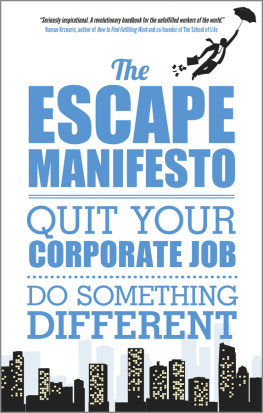

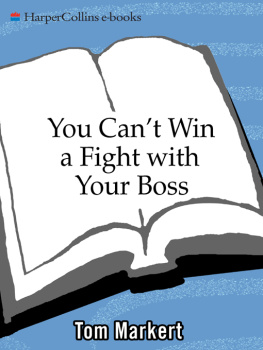
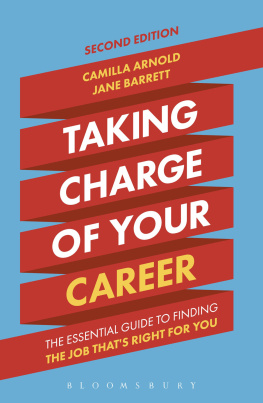
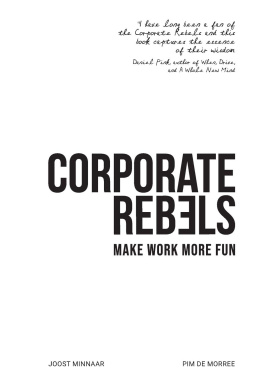
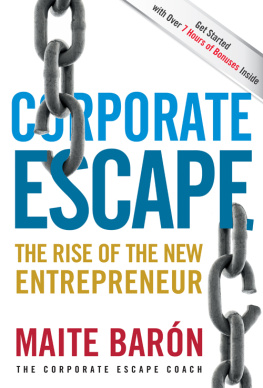
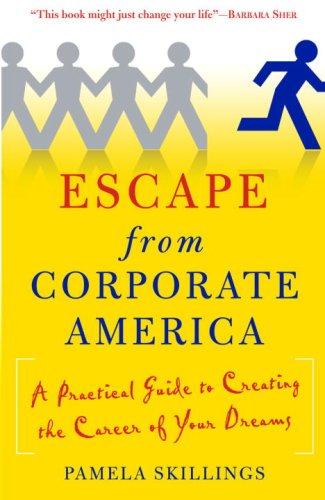
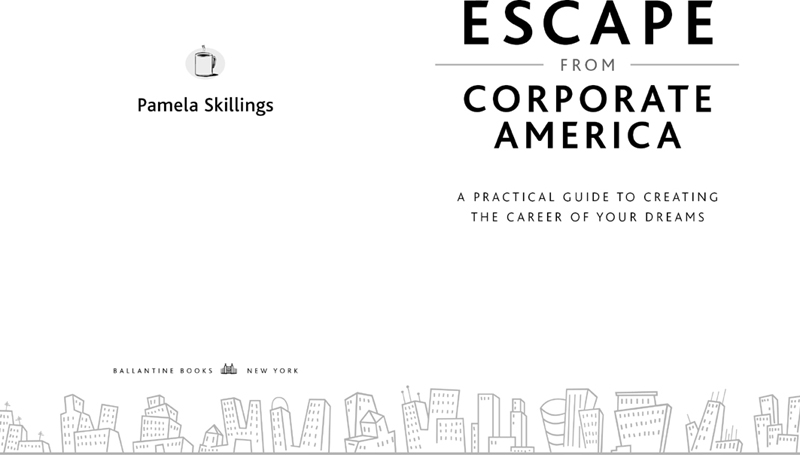


 Been There, Done That, Wrote the Book
Been There, Done That, Wrote the Book